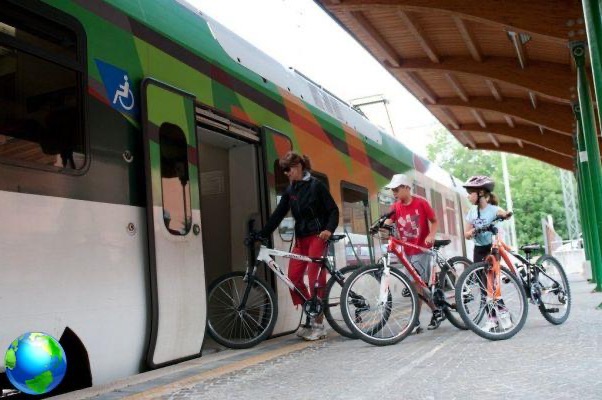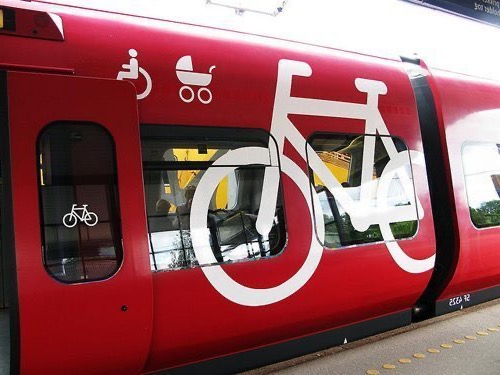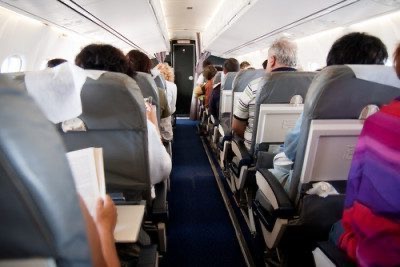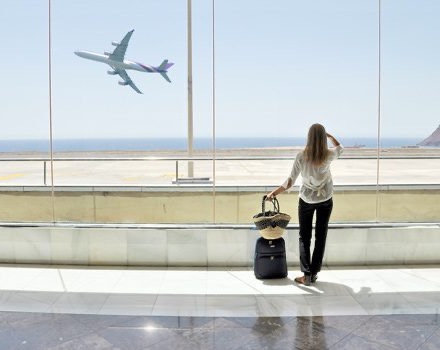Do you love cycling trips? Here are the rules for trains, planes and buses not only in Italy but also in the rest of Europe for a green and cheap trip, read the post.
Since I started traveling with mine bicycle, I can no longer do without it. In my opinion it allows you to experience a journey to the full, giving you a minimum of independence even if you are in a city you don't know.

In addition, you save money, since having your own transport means you are not forced to buy a ticket for public transport, and it is especially convenient if you visit a city for only a short time. And speaking of public transport: is the subway tunnel better or a nice walk in the open air? I adore travel by bicycle because it allows me to explore a place more deeply, even while looking for a supermarket for example. Cycling around a new city means see at least twice as much, do it without stress and independently, also saving a lot of time.
If I think about it, i travel that I have in my heart I did them all together with my bicycle, in a cold and snowy Stockholm or for a walk in the woods. You don't need to be particularly trained, you just need a great desire for adventure and a little patience (when the backpack is heavy for example!) But if you love being outdoors, then I recommend you gear up!

Some practical advice: if you are traveling by bicycle, waterproof clothing should never be missing in your luggage (I mainly use trousers and jacket), a pump to inflate the inner tubes, some tools for any repairs and at least one spare inner tube . Very useful in an emergency are the kits to repair the inner tube when the damage can be easily found.
The bicycle that is undoubtedly more comfortable for a traveler is that folding. This can be carried for free (if folded of course) on any means of transport, excluding the plane. Sometimes it is required to put the bike in one closed bag (for example on particular trains), but in any case the transport is free. It often happens that drivers or controllers ignore the fact that these are not considered "normal bicycles", and therefore it can happen that someone makes a fuss. But it is enough to say (and if necessary to insist) that the folding bicycle is equivalent to a piece of luggage to silence them! Because indeed it is.

I will briefly explain how it works for normal bicycles instead.
In plane it is possible to transport the bicycle by paying one extra fee, which varies from company to company (prices from about 20 to 75 euros) or by paying the fare for normal luggage. Only the British Airways offers bicycle transport free under 23 kg. The bicycle must be disassembled and well packed, without pedals, with the handlebars locked and the inner tubes deflated. Obviously consult the regulations of the airline you are interested in before booking.
In train the situation is more complex because of the transport conditions vary from country to country, so I'll do a little summary.
In Italy transport is free on regional and Intercity if the bicycle is disassembled and closed in a bag. On regional trains it is possible to transport the bicycle not disassembled by paying a day ticket of 3,5o euro valid for 24 hours, or by buying a normal second class single ticket.

In Germany and Austria on Intercity trains it is possible to travel with a bike (if the train allows it), by booking in advance and paying an additional fee. There are wagons suitable for transporting bicycles and therefore it is not necessary to disassemble it. As for regional transport, it is preferable to consult the railway sites because the situation even varies from region to region: in some Länder transport is free and in others you have to buy a day ticket for the bicycle. It is also possible to send the bicycle, but the service is not very cheap, so I do not recommend it.
In Switzerland a shipping service, otherwise you have to pay an extra fee. However, if the bicycle is disassembled, then the transport is free.
In England the situation is particular, given that there are many railway companies. In general, transportation is free, but with reservation required.
on bus on long distances it is usually not possible to transport the bicycle unless it is disassembled and then it is made into luggage. Some German companies (MeinFernbus for example) offer bicycle transport, paying an additional fee and transport the bicycle even if it is not disassembled. But be careful because sometimes it is also necessary to pay for the folding or disassembled bicycle! So get well informed!

For subways and internal buses in cities, from experience I can say that transport is often limited to certain hours of the day, which exclude peak hours. You rarely have to pay and it all depends on the actual capacity of the vehicles, because it could happen that in case of crowding the driver refuses to carry the bicycle. To avoid this, the most modern subways have certain spaces dedicated for example to bicycles and wheelchairs, just to assert the rights of cyclists a little (even if these rights are not always respected).
I hope my advice has been useful to you and I hope to see more bikes on the road! Have a good ride!


























